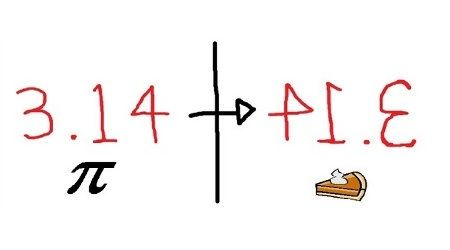Check out my project here:
https://the-best-codes.github.io/projects/pi/
Happy Pi Day, fellow developers! 🥧✨
Today, we're diving into the delicious world of mathematics to celebrate our favorite irrational number, π (Pi). And what better way to honor this mathematical constant than by calculating its digits? While mathematicians have reached mind-boggling digit counts (in the Trillions!), we can still go on our own JavaScript adventure to squeeze out as many digits of Pi as our devices can handle.
Reminder: Calculating an enormous number of pi digits is resource-intensive. Be prepared for your computer to work up a sweat if you leave the code running too long!
The Magic Code
The generateDigitsOfPi function is a beautiful example of a spigot algorithm in action. This type of algorithm “spigots” out digits of π one at a time in a stream (hence the name).
function* generateDigitsOfPi() {
let q = 1n;
let r = 180n;
let t = 60n;
let i = 2n;
while (true) {
let digit = ((i * 27n - 12n) * q + r * 5n) / (t * 5n);
yield Number(digit);
let u = i * 3n;
u = (u + 1n) * 3n * (u + 2n);
r = u * 10n * (q * (i * 5n - 2n) + r - t * digit);
q *= 10n * i * (i++ * 2n - 1n);
t *= u;
}
}
// More code
function displayTenNextDigits() {
let digits = "";
for (let i = 0; i < G_NUMBER_OF_DIGITS; i++) {
digits += generator.next().value;
}
// Do something with the digits here
}
Let's crack the code:
-
Variables:
-
q,r,t: These hold BigInt values (large integers) used in the algorithm. -
i: A counter variable.
-
-
The Loop:
- The
while(true)loop acts as the engine, continuously generating digits. -
digitis calculated using a complex formula involvingq,r,t, andi. This formula is based on the Bailey-Borwein-Plouffe (BBP) algorithm, renowned for its efficiency in pi calculation. -
yield Number(digit): This special keyword pauses the function, returning the current digit (digit) and allowing you to resume later.
- The
Under the Hood
While a full explanation of the BBP algorithm goes beyond this article (check out https://en.wikipedia.org/wiki/Bailey_... if you are curious!), here's a simplified understanding:
- The formula manipulates BigInt values (
q,r,t) to progressively converge towards the actual digits of pi. - Each iteration calculates a new digit and updates the variables for the next round.
Unveiling the Hidden Digits
The second function, displayTenNextDigits(), takes the baton:
-
digits: An empty string to store the retrieved digits. -
The Loop:
- It iterates a predetermined number of times (
G_NUMBER_OF_DIGITS) using a for loop. - Within the loop, it calls
generator.next().value. RemembergenerateDigitsOfPi()? This retrieves the next pi digit using theyieldstatement. - Each retrieved digit is appended to the
digitsstring.
- It iterates a predetermined number of times (
Bringing it all Together
Here's where you get creative! Replace the comment // Do something with the digits here with your desired output format. You can:
- Use
console.log(digits)to print the digits to the console. - Get fancy and visualize them using a JavaScript charting library like Chart.js.
- Challenge yourself to write the digits to a file (be aware, this might take a significant amount of time for a large number of digits).
Remember:
- Adjust
G_NUMBER_OF_DIGITSbased on your machine's capabilities. Start small and gradually increase as you experiment. - This is for educational purposes. Calculating an extreme number of digits might overload your system.
- Take a pie break every now and then; after all, it’s a celebration!
Check out how I used the base code:
Happy coding, and may your Pi Day be as infinite and transcendental as the number itself! 🎉
This article was written with the assistance of AI.
Fun fact about Pie:
The mirror image of PI.E is (an admittedly sloppy) 3.14:
Article by BestCodes
https://the-best-codes.github.io/





















